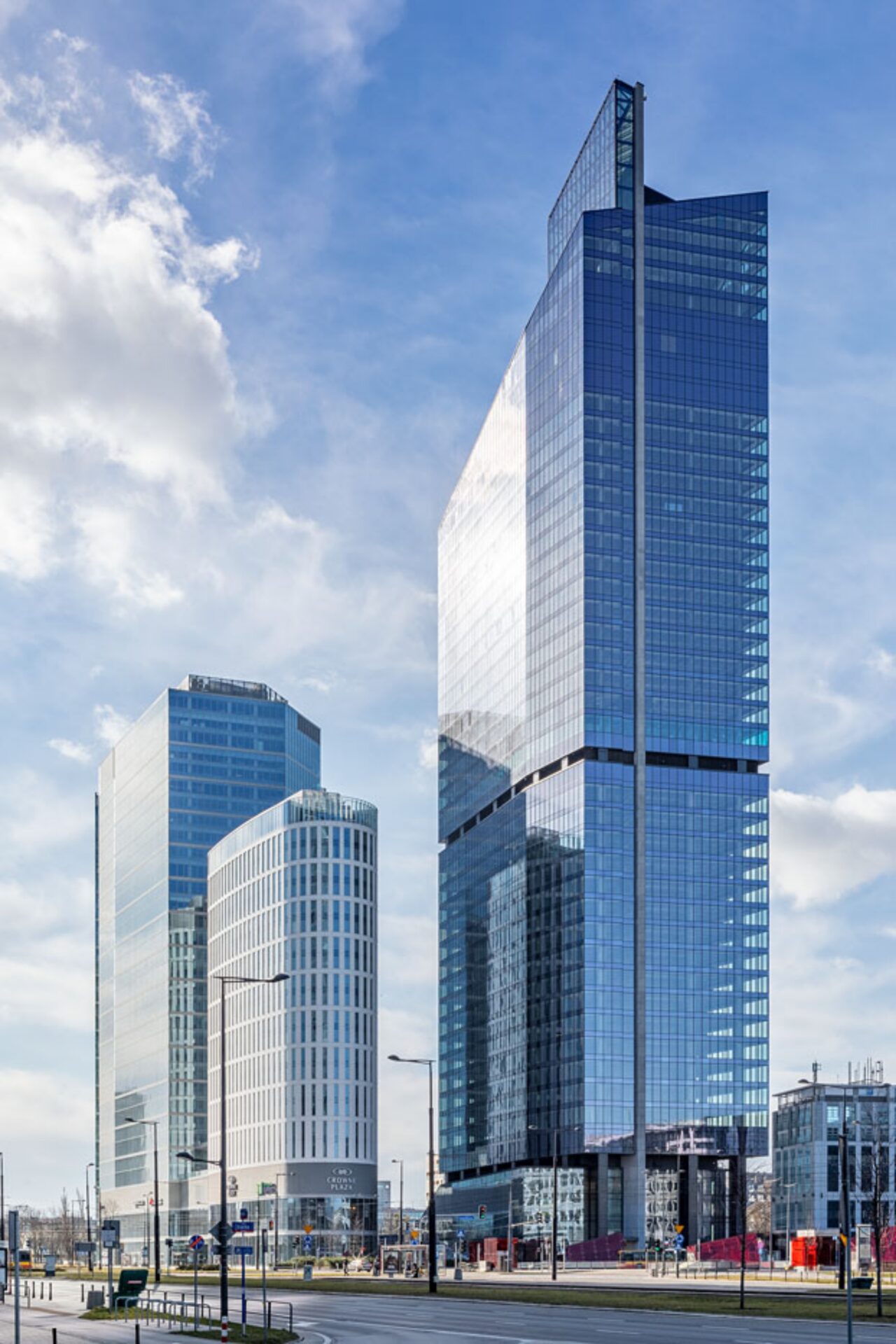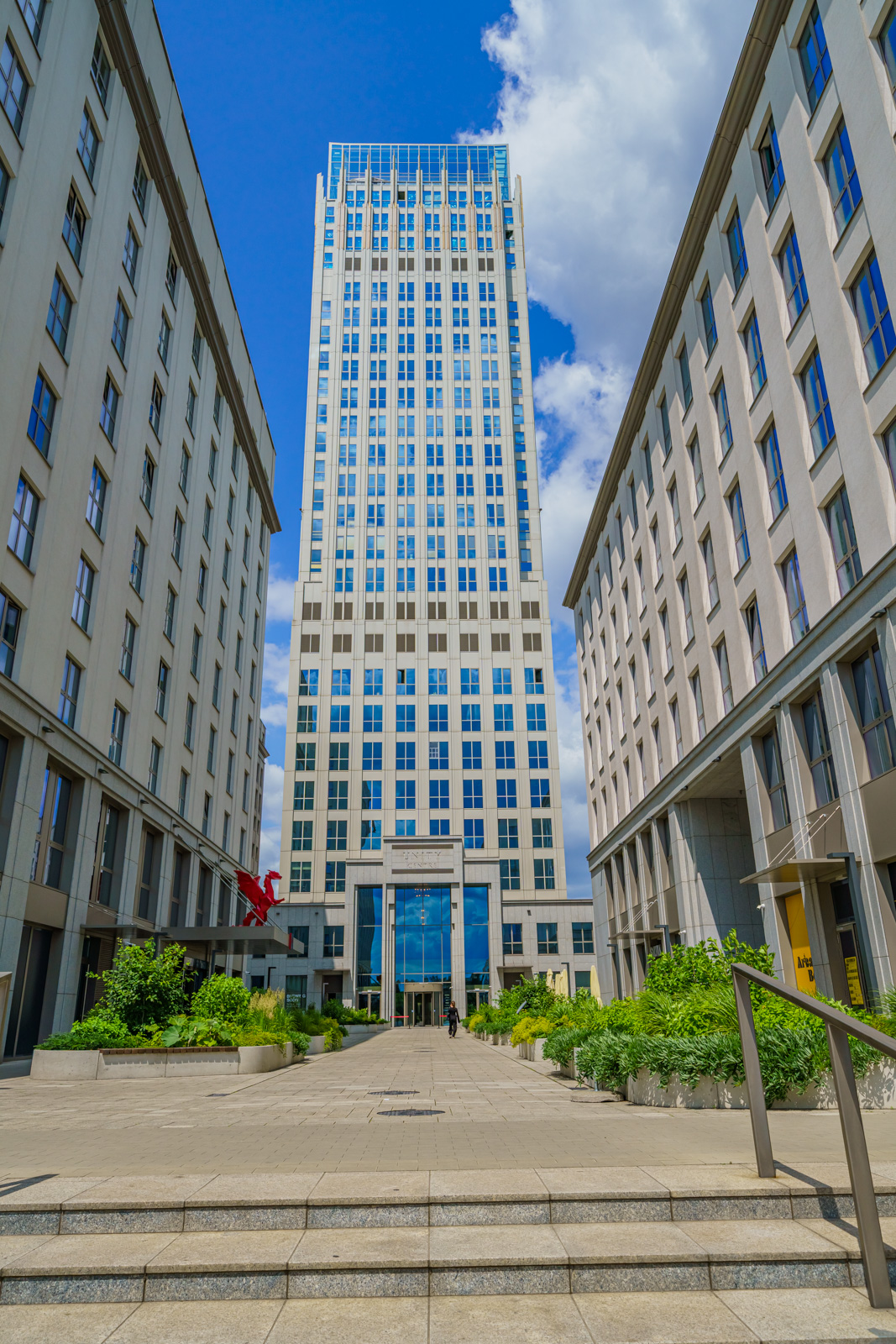It is not hammocks or a gym, but a clean office in a convenient location that is the actual priority in the workplace for modern employees, reveals the latest research from real estate advisory firm Savills. Polish workers want to have control over their office design and most of their expectations do not differ much from those reported by employees in Western Europe.
The What Workers Want report reveals the findings of a survey carried out in spring 2019 for Savills. The survey investigated the wants and needs from the workplace of more than 11,000 European office workers in 11 European countries, including over 1,000 people from Poland.
According to the survey, the most important requirement for Polish office workers is… cleanliness, which is considered important or very important by over 90 percent of respondents. It is far more important than, for instance, availability of parking spaces or suitable conference rooms for meetings.
“The survey findings clearly indicate that in the first place, regardless of interior fit-out trends, employers should get the absolute basics right. If the office is not clean or does not provide the right temperature or lighting, there is no point in investing in play rooms or other sophisticated amenities to make workers feel happy,” says Jarosław Pilch, Head of Tenant Representation, Office Agency, Savills.
Poland vs Europe
The findings of the Polish survey are broadly in line with those reported in the European study. What is different is Polish workers’ attitude to the internal design which is slightly more important to them (82 percent versus 70 percent in the European survey). Opinions on the importance of car parking spaces also differ. A parking space is an important or very important factor for 81 percent of Polish respondents compared 68 percent in the survey covering all the European countries tracked.
Savills survey results show that 38 percent of Polish workers work in open plan offices, a significantly lower rate than in Western Europe. By comparison, in the UK nearly three quarters of employees operate from an open plan office. Due to the popularity of such office layouts, an additional quiet space for focused work has become extremely important to as much as 89% of Polish respondents. As a result, modern office designs increasingly feature small rooms for work with concentration, sound-absorbing furniture and panels, as well as soundproof phone booths for mobile calls to avoid disturbing other workers.
“It appears that many employers recognise the needs of workers and get their priorities right. We asked our survey respondents to name the best factors in their current workplace. It turned out that they were almost the same as those rated as the most important. Polish workers also admit that office buildings fail to provide crèches, free snacks or facilities for pets, but such amenities are also rated as the least important,” says Wioleta Wojtczak, Associate Director, Head of Research, Savills.
Happiness in the workplace
How to make workers happy and create an ideal workplace? Savills survey has revealed that employees working in city centres are the happiest. Half of respondents consider city centres as ideal locations and 67 percent of those working there say that they are happy.
A central location usually provides access to a large number of amenities around the building, including lunch facilities which are extremely important. According to the What Workers Want survey, workers who eat out are the happiest, but only one in ten Polish employees can afford to have such a lunch break. 36 percent go to an office kitchen and 33% eat at their desks. 17 percent of respondents have lunch in canteens located in office buildings – this being the most preferred option in IT and manufacturing sectors.
Workers’ voice
Workers also appreciate having control over their office design – 70 percent of respondents would like to have a say. Being able to work from home is also high on workers’ agenda, but according to Savills survey such opportunities are provided by only 17 percent of employers. Only half of workers who spend at least 90 percent of their work time at their desks say that they are happy.
“The office design process should be preceded by a review of workers’ needs in order to create an environment tailored to their workstyles. The comfort of work area is frequently influenced by things which are barely visible at first glance but should be addressed by specialists. These will include efficient ventilation and air-conditioning systems and appropriate lighting. In addition to improving the comfort in the work area, cutting-edge technologies help reduce the environmental footprint and bring down service charges,” says Jakub Jędrys, Associate Director, Head of Building & Project Consultancy, Savills.
“Technological and societal changes have reshaped the concept of work, one of basic human concepts, which today differs fundamentally from its classical meaning. These changes also require a rethink of the work environment which is part of a company’s corporate culture and should be consistent with it. Poorly designed open plan layouts generate excess stimuli that impair concentration and quickly cause tiredness,” says Joanna Heidtman, PhD, a psychologist and sociologist.
An employer’s perspective
And how do employers see an ideal office? They will definitely expect it to improve work productivity and significantly help in the chase after the best talent on the increasingly competitive labour market.
“A comfortable office in a convenient location is what job applicants ask recruiters during their first interview. They frequently identify it as the key decision driver, particularly when considering several job offers. Other critical criteria include availability of retail and F&B facilities in the vicinity of office buildings, and proximity to green areas in which to spend leisure time after work,” says Anna Tietianiec, a labour market expert from recruitment agency Manpower.
“Job candidates coming to interviews look at their future workspace to find out whether it is environmentally-friendly and well-equipped, for instance with adjustable desks. Such advantages should be made known in job offers and on social media profiles to build a positive image of an employer,” adds Manpower’s expert.
According to Savills, 64 percent of respondents say that their current office design has an impact of their work quality. Those working in private offices feel their office layout has a positive impact on their productivity levels and, regarding this issue, they significantly outnumber workers in open plan offices. Also, there is a higher proportion of workers in coworking spaces and serviced offices believing their current workplace improves their productivity compared to those in conventional offices.
Impact of an office on employee loyalty
Providing the most attractive office possible is pivotal as 45 percent of respondents expect to leave their current employers within the next five years. Most of the respondents, who had been asked by Savills to consider two potential jobs offering the same financial package and similar career opportunities, acknowledged office location as a key decision driver, indicating the significance of this criterion to workers.
The impact of the office location on employee retention is also attested by the fact that compared to other commuters there are twice as many workers with commutes under 15 minutes who say they will not move jobs in the next ten years. Unfortunately, only about every fifth person enjoys such short commutes to work, which is largely comparable to the European average. However, in comparison with Western Europe, commutes taking more than 90 minutes are a lot rarer in Poland. Despite the growing environmental awareness among Polish people, the car remains the most popular mode of commuting – it was indicated by 64 percent of respondents.
Conclusions
“Companies focusing on choosing the right office stand a chance of winning the chase after the best talent. Poland’s unemployment rate is now at its lowest in history. Due to the aging society and shrinking numbers of people entering the labour market, employers are finding it increasingly difficult to attract and retain workers. Our research shows that the location of an office fosters employee loyalty and that office fit-out increases productivity. This clearly indicates that the choice of a suitable office is today one of key decisions in business,” sums up Jarosław Pilch, Savills.







